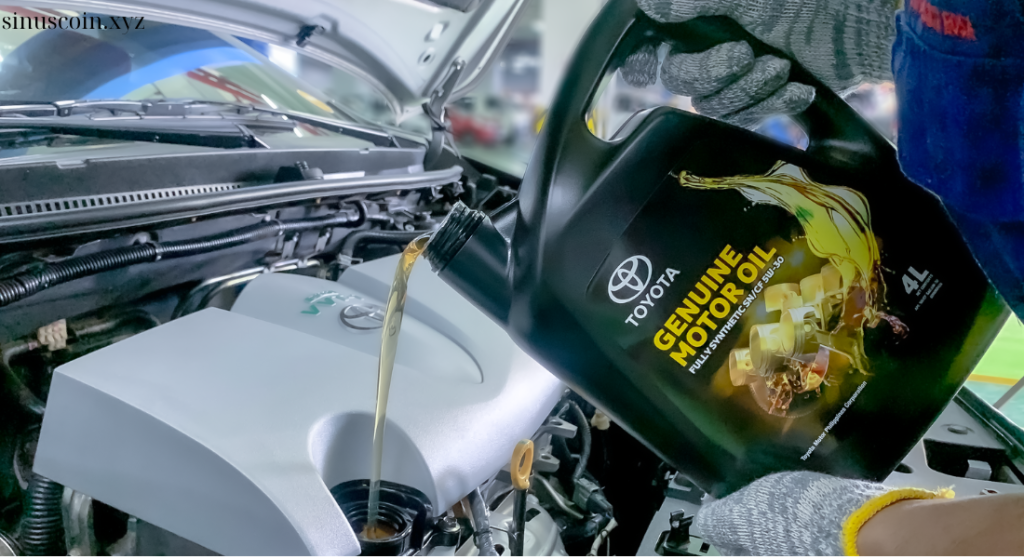When it comes to maintaining the health and performance of your diesel engine, the choice of oil is paramount. Full synthetic diesel oil has become increasingly popular among vehicle owners and mechanics due to its superior properties compared to conventional oils. Engine performance, fuel efficiency, and overall longevity can be significantly enhanced by selecting the right full synthetic diesel oil. This comprehensive guide will explore the benefits of full synthetic diesel oil, key features to consider, and recommendations for the best products available on the market today.
Table of Contents
ToggleKey Highlights
- Understanding Full Synthetic Diesel Oil: What makes it different from conventional oil?
- Benefits of Using Full Synthetic Diesel Oil: Why you should consider making the switch.
- Key Features to Look For: Important specifications to consider when choosing oil.
- Top Brands and Products: A review of some of the best full synthetic diesel oils available.
- Best Practices for Maintenance: Tips for optimizing engine performance with synthetic oil.
1. Understanding Full Synthetic Diesel Oil: A Primer
Full synthetic diesel oil is engineered from high-quality base oils and advanced additives to provide optimal lubrication and protection for diesel engines. Unlike conventional oils, which are derived from crude oil, synthetic oils are artificially created through chemical processes. This results in a more consistent molecular structure and superior performance characteristics.
Key differences between full synthetic and conventional oils include:
- Molecular Structure: Full synthetic oils have uniform molecules that flow more easily, providing better lubrication and reducing friction.
- Additive Packages: Synthetic oils typically contain advanced additives that improve performance in high-stress environments, enhancing resistance to thermal breakdown and oxidation.
- Temperature Performance: Synthetic oils perform better at both high and low temperatures, providing protection in extreme conditions that conventional oils might struggle with.
2. Benefits of Using Full Synthetic Diesel Oil: The Advantages
Choosing full synthetic diesel oil can lead to numerous benefits for your engine and overall vehicle performance:
- Improved Engine Protection: Synthetic oils provide superior protection against wear and tear, reducing the risk of engine damage and extending engine life. They maintain viscosity in high temperatures, ensuring that critical engine parts remain lubricated.
- Enhanced Fuel Efficiency: By minimizing friction and allowing the engine to run more smoothly, full synthetic oils can help improve fuel efficiency. This is especially important for diesel engines, where fuel economy can have a significant impact on operating costs.
- Better Performance in Extreme Conditions: Full synthetic diesel oils maintain their performance even in extreme temperatures, providing reliable lubrication in both cold starts and high-temperature environments. This means your engine can perform optimally, no matter the conditions.
- Extended Oil Change Intervals: Synthetic oils typically last longer than conventional oils, which can lead to fewer oil changes. This not only saves time and money but also contributes to a more environmentally friendly approach by reducing waste oil.

3. Key Features to Look For: Selecting the Right Oil
When choosing the best full synthetic diesel oil for your vehicle, consider the following features:
- API Certification: Look for oils that meet the American Petroleum Institute (API) certification. The API rating provides assurance that the oil meets the industry standards for performance and quality.
- Viscosity Rating: Diesel engines often operate best with specific viscosity ratings. Common ratings include 5W-40 or 15W-40, which indicate how the oil flows at different temperatures. Check your vehicle’s manual to determine the recommended viscosity for your engine.
- Additive Technology: Consider oils that feature advanced additive technologies, such as detergents and anti-wear agents. These additives can enhance engine cleanliness and protection against wear.
- Compatibility with Diesel Particulate Filters (DPF): If your diesel engine is equipped with a DPF, ensure that the oil you choose is compatible. Some synthetic oils are formulated specifically for low ash content, which is important for maintaining DPF efficiency.
4. Top Brands and Products: The Best Full Synthetic Diesel Oils
Here are some of the top-rated full synthetic diesel oils available on the market today:
- Mobil 1 Turbo Diesel Truck 5W-40: Known for its excellent wear protection and cleanliness, this synthetic oil is designed specifically for high-performance diesel engines. It provides outstanding performance in extreme temperatures and is suitable for both on-road and off-road applications.
- Shell Rotella T6 5W-40: This fully synthetic oil offers excellent protection against wear and deposits, making it a popular choice among diesel truck owners. It also features Triple Protection Plus technology, which helps enhance performance in heavy-duty applications.
- Castrol EDGE 5W-40: With Fluid Titanium technology, Castrol EDGE provides exceptional strength under pressure, reducing metal-to-metal contact and enhancing engine performance. It’s ideal for drivers looking for advanced performance and protection.
- Valvoline Premium Blue 5W-40: Specifically formulated for heavy-duty diesel engines, Valvoline Premium Blue is a fully synthetic oil that offers superior wear protection and engine cleanliness. It’s designed to meet the needs of modern diesel engines, including those equipped with emission controls.
- Amsoil Diesel Oil 5W-40: Amsoil is known for its high-quality synthetic oils. Their diesel oil offers excellent protection and performance, with exceptional resistance to thermal breakdown and excellent cleanliness.
5. Best Practices for Maintenance: Maximizing Engine Performance
To get the most out of your full synthetic diesel oil, consider the following maintenance practices:
- Regular Oil Changes: Even though synthetic oils last longer, regular oil changes are still essential. Follow the manufacturer’s recommendations for oil change intervals to ensure your engine remains well-lubricated.
- Monitor Oil Levels: Regularly check your oil levels and top up if necessary. Maintaining the proper oil level is crucial for engine protection and performance.
- Keep the Engine Clean: Ensure that your engine remains clean and free of contaminants. A clean engine runs more efficiently and reduces the likelihood of wear and damage.
- Use Quality Filters: Always use high-quality oil filters that are compatible with your synthetic oil. This helps ensure that the oil remains clean and free of debris.
- Pay Attention to Engine Performance: Monitor your engine for any changes in performance. Unusual noises, reduced fuel efficiency, or warning lights can indicate issues that need to be addressed promptly.
Conclusion
Using the best full synthetic diesel oil is vital for maximizing engine performance, enhancing fuel efficiency, and extending the life of your vehicle. With numerous options available, it’s essential to select a product that meets your specific needs and adheres to industry standards. By understanding the benefits and key features of full synthetic diesel oil, you can make an informed decision that will keep your engine running smoothly and efficiently for years to come.
FAQ
- What is full synthetic diesel oil?
Full synthetic diesel oil is a type of engine oil created from chemical compounds, offering superior performance compared to conventional oils. It provides better lubrication, increased efficiency, and enhanced protection against wear. - Why should I switch to synthetic oil?
Switching to synthetic oil can improve engine performance, increase fuel efficiency, and extend oil change intervals. It also offers better protection in extreme temperatures and conditions. - How often should I change synthetic diesel oil?
While synthetic oils typically have longer intervals between changes, you should still follow your vehicle manufacturer’s recommendations, which often suggest oil changes every 5,000 to 10,000 miles, depending on driving conditions. - Can I mix synthetic oil with conventional oil?
It is generally not recommended to mix synthetic and conventional oils, as this can dilute the performance properties of the synthetic oil. If you need to add oil, it’s best to use the same type. - How do I choose the right viscosity for my diesel engine?
Refer to your vehicle’s owner’s manual to find the recommended viscosity rating for your engine. Common ratings for diesel engines include 5W-40 and 15W-40, which indicate how the oil flows at different temperatures.

